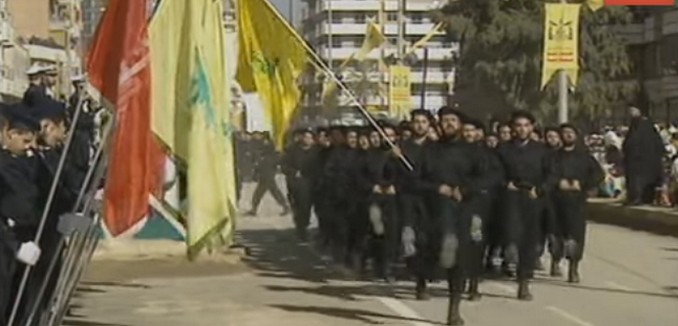The Israeli army is bolstering the country’s northern defenses in anticipation of future attacks from the Iran-backed terror group Hezbollah, Haaretz reported Sunday.
The Israel Defense Forces changed its doctrine towards the terror group following threats by its leader Hassan Nasrallah, who claimed that Hezbollah sought to “enter into Galilee and …go even beyond the Galilee.”
It is believed that Hezbollah does not currently want to instigate a conflict with Israel due to fears of the damage such a war would cause to Lebanon. But the IDF believes that when Hezbollah attacks, it will combine a massive barrage of rockets with a ground offensive—seeking to seize Israeli territory and hold it, even for a short time, as a demonstration of the improved military capabilities it acquired while fighting on behalf of Syrian dictator Bashar al-Assad.
In order to prevent such a ground attack, the IDF has built obstacles against a possible armored incursion and reinforced the capabilities of communities against fire from snipers, mortars, anti-tank guns, and rockets.
Hezbollah released pictures on social media last week showing off its “massive” arsenal of armored vehicles.
The IDF’s reported adaptation to the improved capabilities that Hezbollah acquired in Syria matches the recent assessment of former Shin Bet chief Avi Dichter, who now chairs the Knesset’s Foreign Affairs and Defense Committee. Dichter stated in August that Hezbollah could now “fight on a large scale, in platoons and battalion, while using sophisticated weaponry and heavy, precise arms that they receive from Iran.” These advanced capabilities will ensure that the “next round” in the conflict between Hezbollah and Israel will be much different than the last war in 2006.
A report published by the Foundation for Defense of Democracies in July noted that Israeli officials believe that any future war with Hezbollah has the potential cause “thousands of civilian deaths” in Israel. (Hezbollah threatened in February to bomb ammonium tanks in Haifa, which could kill tens of thousands of people.)
Jonathan Schanzer, the think tank’s vice president of research, explained that Hezbollah’s widely-reported tactic of hiding military assets in civilian areas may also lead to mass casualties. Reports emerged two years ago that Hezbollah was offering reduced-price housing to Shi’ite families who allowed the terrorist group to store rocket launchers in their homes. An Israeli defense official told The New York Times in May 2015 that the buildup of Hezbollah’s terror infrastructure in southern Lebanese villages meant that “civilians are living in a military compound” and that their lives were at risk. A few days later, a newspaper linked to Hezbollah bolstered the Israeli assessment.
Nasrallah boasted in June that “Hezbollah’s budget, its income, its expenses, everything it eats and drinks, its weapons and rockets, are from the Islamic Republic of Iran.” That speech seemed to confirm a public assurance given to him in August 2015 by Iranian Foreign Minister Mohammad Javad Zarif that the nuclear deal that Iran signed with global powers presented “a historic opportunity” to confront Israel. Iran announced in June that its military spending would increase by 90 percent in the following fiscal year.
Nasrallah’s comments also called into question assurances made by Secretary of State John Kerry that the U.S. would ensure that Iran could not arm Hezbollah, despite the lifting of nuclear-related sanctions against Tehran. “Our primary embargo is still in place,” Kerry said at a Senate hearing last year. “We are still sanctioning them. And, I might add, for those things that we may want to deal with because of their behavior, for instance, Hezbollah, there is a UN resolution, 1701, the prevents the transfer of any weapons to Hezbollah. That will continue and what we need to do is make sure that we’re enforcing it.”
While UN Security Council Resolution 1701, which was passed unanimously to end the 2006 war, forbids the arming of Hezbollah, Iran has continued to send the terrorist group weapons, and the Security Council has refused to enforce it.
[Photo: AP Archive / YouTube ]




